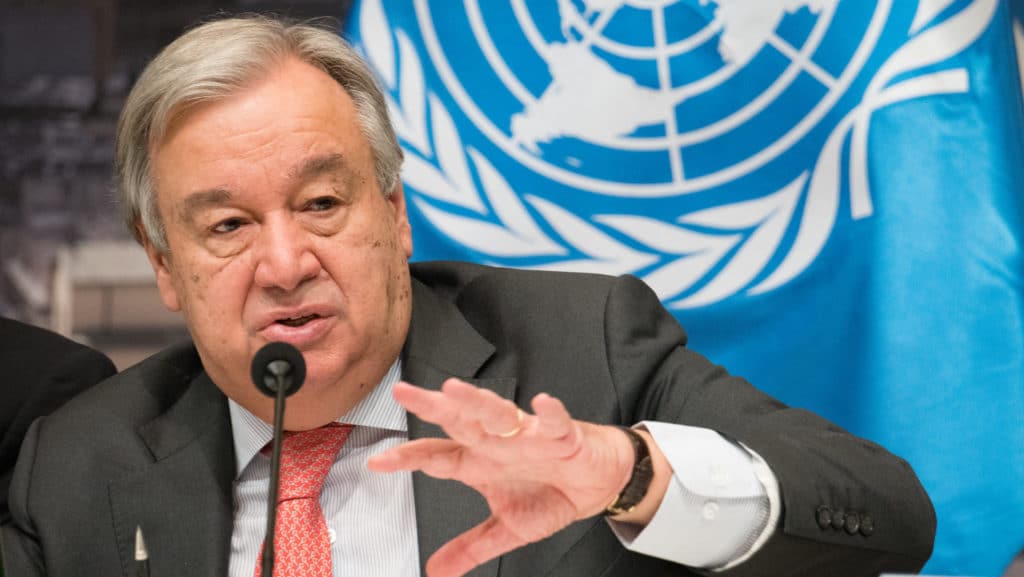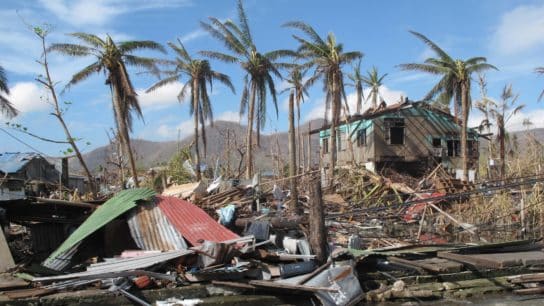Speaking at this week’s UN Food System Summit Stocktaking Session, UN chief António Guterres condemned Russia’s decision to withdraw from the Black Sea export deal with Ukraine.
—
Speaking on the first day of the UN Food System Summit Stocktaking Session (UNFSS+2) in Rome on Monday, UN chief António Guterres urged Russia to renew the landmark Black Sea Deal, just days after the country announced it would withdraw from the pact.
The Black Sea esport deal – a landmark deal between Russia and Ukraine that allowed grains and basic food supplies from Ukraine to be exported to countries in Africa, the Middle East, and Asia – was brokered by the UN and Turkey in July 2022 in an effort to ease global food insecurity.
Last week, Russia announced that it would step back from the grain export deal with Ukraine. The decision could have devastating impacts on food security in malnourished developing countries and Ukraine’s capacity to export basic food supplies to global markets, experts have warned.
In a tweet published after Russia’s announcement, Guterres had already condemned Russia’s withdrawal from the deal, saying the Black Sea export deal was “a lifeline for global food security in a troubled world.”
I deeply regret Russia’s decision to terminate the implementation of the Black Sea Initiative, which has been a lifeline for global food security in a troubled world.
Hundreds of millions facing hunger & consumers confronting a global cost-of-living crisis will pay the price.
— António Guterres (@antonioguterres) July 17, 2023
Stakeholders from financial sectors, environmental activists, governments and youth groups gathered for three days at the Food and Agriculture Organisation (FAO) headquarters in Rome to review progress made since the first edition of the Food System Summit, which was held in 2021. The summit consisted of scheduled plenary sessions, leadership dialogue, and special events and served as an “enhanced international cooperation and solidarity that leaves no one behind.”
You might also like: What Must Happen at the 2023 UN Food System Summit?
During the UNFSS+2, the UN focused on ensuring that the UN’s efforts to transform food systems are now inclusive of vulnerable groups.
Leadership dialogues such as Food Systems for the People and Food Systems for Prosperity ensured that nutritional diets were made inclusive to marginalised groups. According to the UN’s official website, policy and decision makers adopted a “rights-based approach”, which was to emphasise the importance of human rights in policy making.
The summit also intends to keep the 1.5C goal of the Paris Agreement alive, reducing CO2 emissions through cooperation with local food producers and new agricultural methods. Agriculture is one of the biggest polluting sectors. Agricultural production is estimated to account for 40% of global food system emissions due to land conversion and methane emissions from livestock
According to the Council of the European Union, the Russia-Ukraine war led to an unprecedented surge in food prices in 2022 and 2023. Both countries are among the biggest exporters of wheat, maize, sunflower seed and oil in the world. This is significant, as many nations around the world – especially lower- and middle-income countries – rely heavily on food exports from Russia and Ukraine.
Data by the World Bank shows that domestic food price inflation remains high around the world, higher than 5% in 61.1% of low income countries, 81.4% of lower-middle income countries, and 77% of the upper-middle income.
The Russia-Ukraine conflict also sparked a global wheat crisis. According to Statista, the UN is expected to produce 21 million tonnes of wheat during its harvests in 2022 and 2023, a decrease from last year’s 33 million metric tonnes.
Hunger and malnutrition are rising severely around the world. The most recent Joint Child Malnutrition Estimates for 2022 indicates that 148.1 million children under five were stunted in 2022, the equivalent of one in five children in the world. According to the World Food Programme (WFP),more than 345 million people face high levels of food insecurity in 2023. In Burkina Faso, Mali, Somalia and South Sudan, at least 129,000 people are expected to experience famine.
You might also like: The Future of Farming: Can We Feed the World Without Destroying It?














